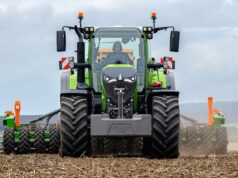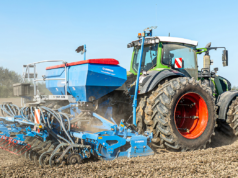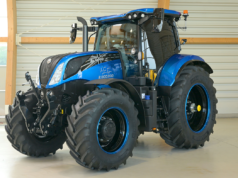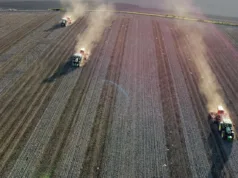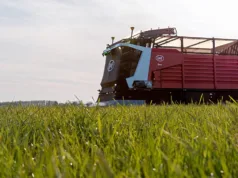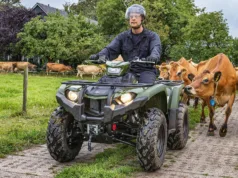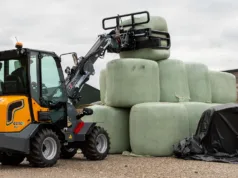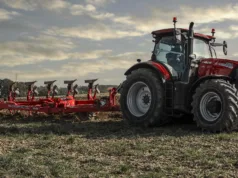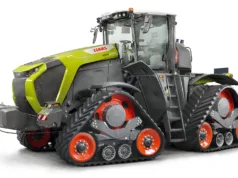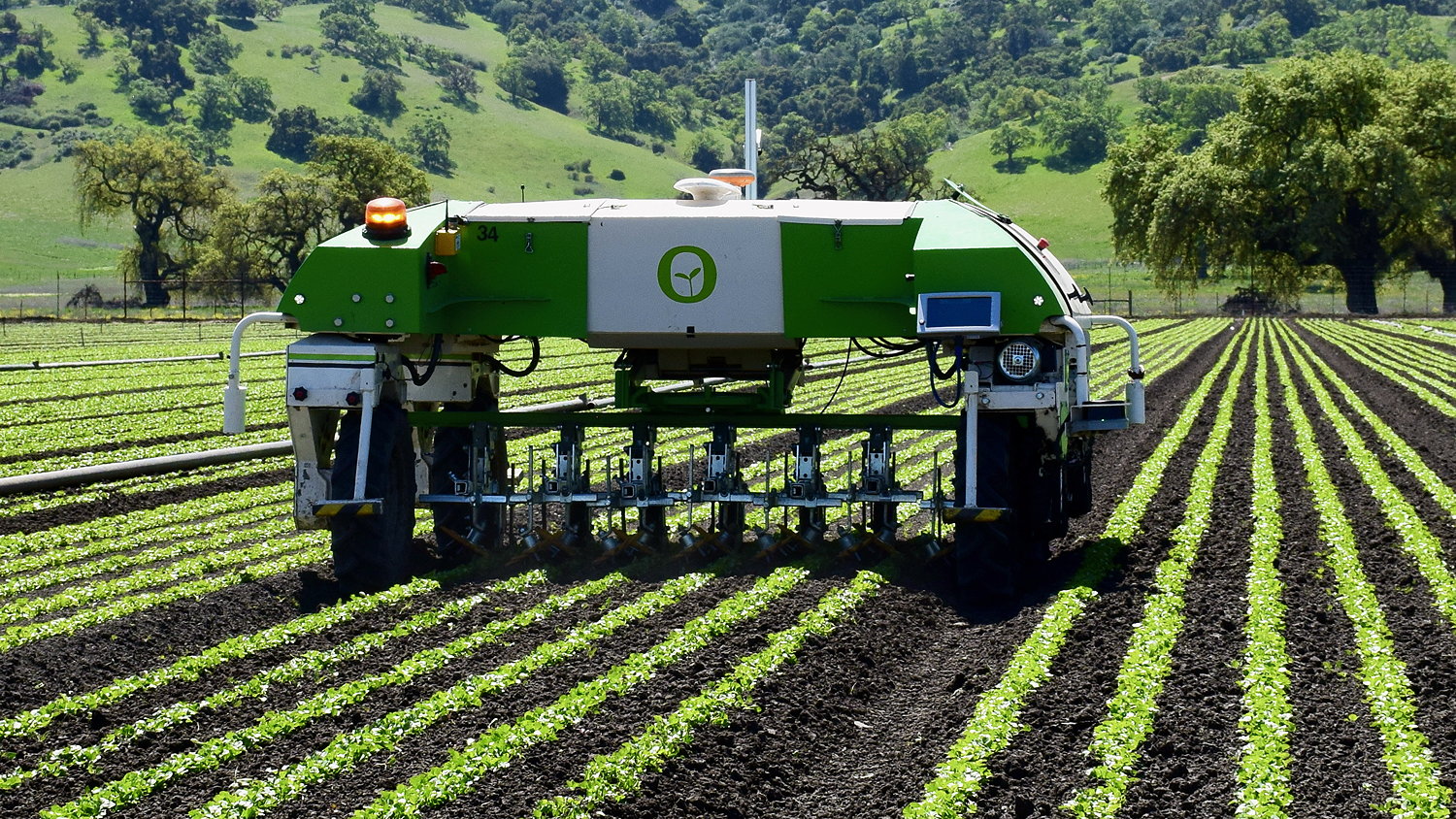
French agricultural robotics specialist Naïo Technologies has announced that its large-scale agricultural robots will be allowed to operate unsupervised in fields from the spring of 2022 – in a development that’s said to be a global first.
The company’s smaller Oz unit was first to gain this certification in 2015, but now it’s the turn of the Dino robot, dedicated to weeding in large-scale vegetable fields, and Ted, a robot dedicated to the viticulture sector, to be approved for completely autonomous work without any human supervision.
“Real autonomy, as requested by our clients, means being able to leave the robot to work alone in a field in order to get on with tasks with a higher added value,” Naïo Technologies’ sales manager, Matthias Carrière, said. “The challenge lies in delegating a simple, repetitive task to your robot, just in the same way you would leave a robot vacuum cleaner or a robot lawnmower to do its work.”
Drawing on its 10 years’ experience in the automation of mechanical weeding, with more than 250 robots now circulating worldwide and 60,000 hours of work carried out, the company is in the final stages of making its fleet of agricultural robots totally autonomous in the field, and Dino and Ted will be certified to work unsupervised in 2022.
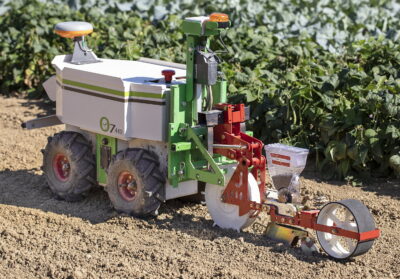
This final step has taken five years of research and development, and the filing of two patent applications too fit the two machines with safety systems allow them to operate unsupervised all over Europe. The cvompany said it has created brand new, hugely reliable safety systems that specifically respond to the constraints of the farming world.
That that hasn’t been easy. Owing to their weight and speed, they’re potentially more dangerous and Naïo Technologies has had to ramp up its efforts in order to comply with provisions in the European Machinery Directive (which also allows operation in the UK for machines certified before the end of 2022) that need to be met to allow the robots to work unsupervised.
The company’s quality, safety and environment manager, Cédric Seguineau – who is also chairman of the PT4 safety of the autonomous functions working group at the European syndicate for agricultural machinery (CEMA) – there were challenges to be met in order to comply with the European legal context and to allow the use of our robots in complete security.
“With autonomy, new risks appear that are not formally identified in current regulations,” he added. “We have had to start again with a blank page, re-do our risk analyses and invent specific mechanisms to manage two major risk factors in particular: colliding with a person and exiting the authorised working area (leaving the field and going onto a road, for example).
“The first relies on systems for the detection of obstacles and identification in order to distinguish a human being from a vine plant, even among vegetation. The second can be managed with so-called geofencing modules that check that the robot is staying within an area set by the user at all times.”
This represented several years’ work for Naïo Technologies, with engineering teams and safety specialists such as Dintec and Bureau Véritas that have allowed the firm to develop a technical response to these challenges, while guaranteeing the robots’ reliability.
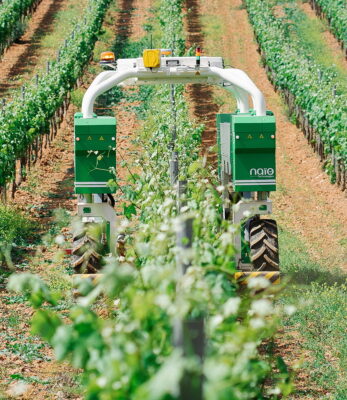
“Every day, we strive to eliminate the risks related to using our machines,” the company’s system engineering director, Franck Jung, said. “One of the main risks is exiting the working area, which will be eliminated next spring thanks to the geofencing system. It’s a dedicated security system that will verify that the robot is permanently within the authorised working area thanks to continually updated positioning data.
“Regarding Ted, the straddling robot for vineyards, the risk remained of encountering a human present among the rows of vines,” he added. “We’re currently finishing the integration of an innovative safety system based on mechanical sensors. This very simple, robust device, for which we have filed a patent, that has shown very satisfactory results during trials among vines. It will allow us to deliver the first 100 per cent autonomous Teds with no human supervision required, from the spring of 2022!”
At the same time, Naïo Technologies has also been developing connected services that allow the safety of crops and the quality of the work carried out by our robots to be continuously guaranteed.
“The main objective of the robots is to carry out high quality work in complete autonomy,” the company’s software engineering director and user experience specialist, Clément Fraisier-Vannier, said. “To this end, since last year they’ve been connected via 4G in order to be able to send data directly from the field, allowing the real-time supervision of one or several machines and having a history of the work carried out on the fields.
“This collected data (in accordance with data protection law) also allows us to develop artificial intelligence that takes note of the quality of the work carried out. This will allow the robot to continually adjust and improve its work; it therefore becomes more autonomous and intelligent, allowing the farmer to check the quality and/or progress of the work carried out in order to develop the trust in the machine and give the peace of mind of a job well done.”


